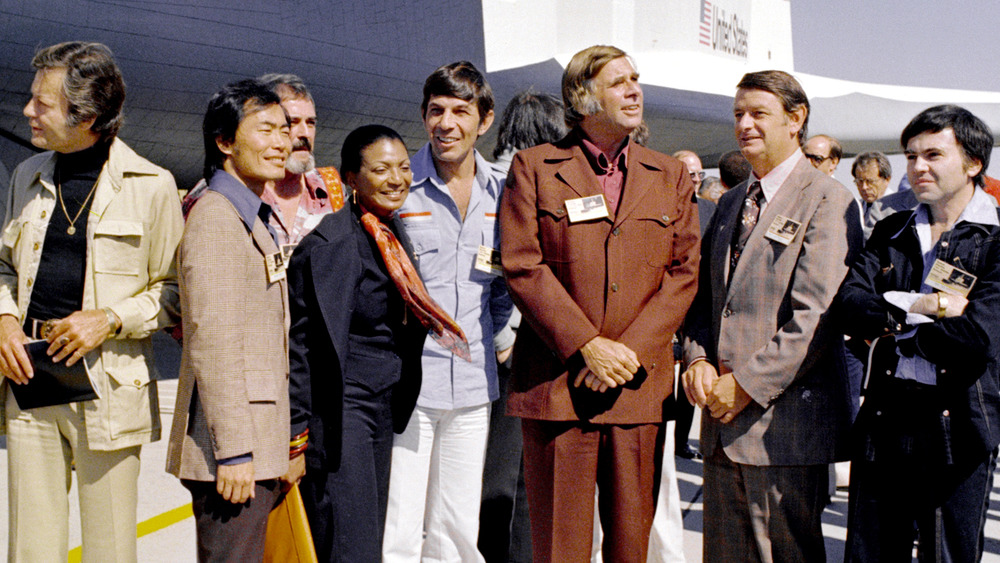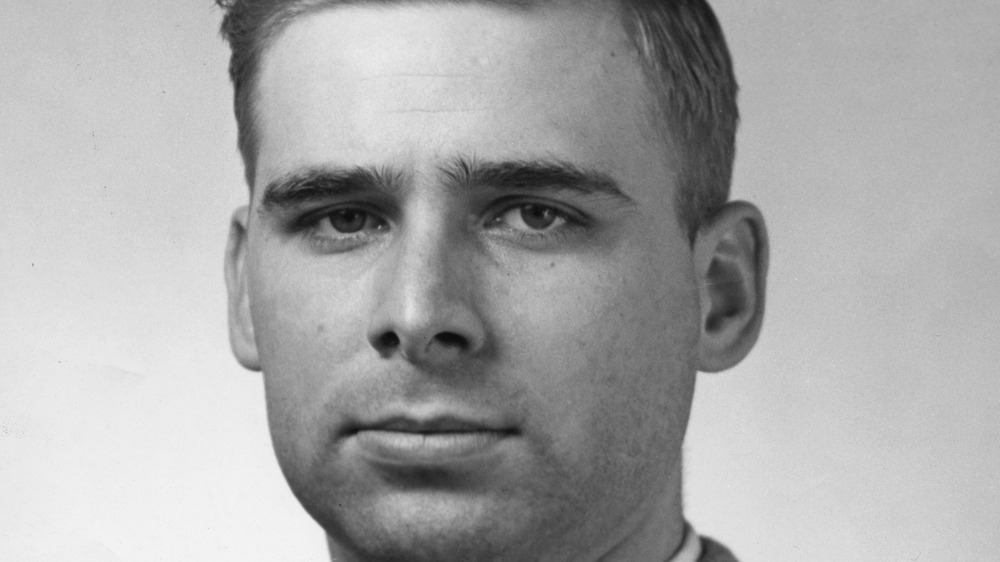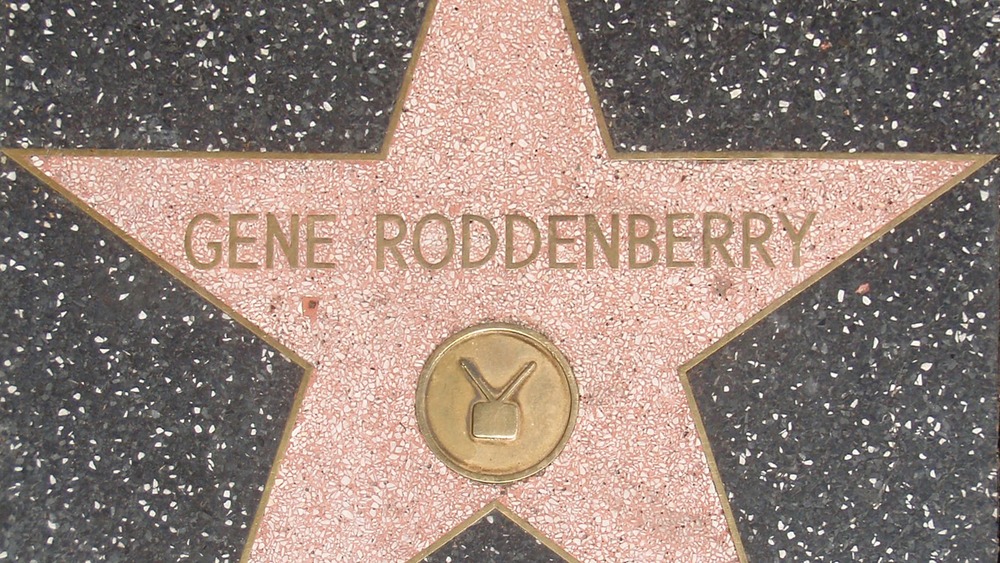The Untold Truth Of Gene Roddenberry
Gene Roddenberry, the creator of Star Trek, single-handedly launched the prime-time science-fiction TV serial in the 1960s. At a time when Westerns, comedy shows, and police dramas were the norm, Roddenberry went from writing for shows like Dragnet and Dr. Kildare to envisioning a new type of "Gulliver's Travels in space," or "Wagon Train to the stars," as The Take says. Starting in 1964, Roddenberry began pitching his idea to NBC: a continuing journey onward into space, staring a core group of adventurers in one-hour morality tales, which would eventually become Star Trek in 1966. After three seasons, as Trek News states, the original Trek went off the air, but went on to gain tremendous fame in syndication. At present, the Trek canon includes eight TV shows, 13 movies, two animated series, and more in the works, including the upcoming Star Trek: Strange New Worlds, outlined on Radio Times.
The original Trek was envisioned as taking place in a post-scarcity society, where racism, poverty, and war no longer existed, and humanity was portrayed as fundamentally harmonious and enlightened. This is why Star Trek has always been connected with progressive beliefs; the original series featured both Black and Japanese-American crew members (and would have had a female first officer if studio executives hadn't canned the idea, as Wired explains). Trek characters such as Kirk, Spock, Picard, Data, Worf, Sisko, Seven of Nine, and many more have become embedded in popular consciousness and adored by millions of fans worldwide.
The Great Bird of the Galaxy Rises and Descends
The creator of this legacy, Gene Roddenberry, has more and more become the subject of scrutiny and criticism since his death in 1991. The National Review quotes actress Diana Muldaur (Doctor Pulaski in Season 2 of Star Trek: The Next Generation), who said of him, "There is no question in my mind that Roddenberry is a genius." Producer Harve Bennett said similarly: "There's no disputing his genius." Whoopi Goldberg, who played fan favorite Guinan on The Next Generation (TNG) said of him, "He was a man who was able to reach out through my television and explain to me that I had a place in the world and in the future." George Takei, activist and actor, who played Sulu on the original series (TOS), said of Roddenberry on Space, "He had an amazing vision ... I knew this was going to be a breakthrough opportunity ... to help break a lot of the stereotypes that we have in this world...."
On the other hand, Roddenberry, "The Great Bird of the Galaxy," has been called a misogynistic creep, a control freak, and a creative fraud who didn't want to have anything to do with Star Trek after it was cancelled in 1969, and almost ruined TNG after being brought on board late in the project. The last of these claims comes from TOS frontrunner William Shatner (Captain Kirk), per his 2014 documentary Chaos on the Bridge, as cited by Gizmodo.
One part brilliant visionary, one part disturbed mind
A lot of the conflict that Shatner recounts in his documentary stems from the "Roddenberry edict," whereby writers' hands were tied because Roddenberry didn't want to share his creative vision. He wanted a "heaven" where none of the characters had conflicts with each other, and he most definitely did not want Patrick Stewart to be his new captain. In fact, TNG only took off when Roddenberry stepped back, and as Wizard World suggests, each failed Trek endeavor stemmed directly from Roddenberry's over-involvement, similar to how George Lucas's auteur approach hamstrung the Star Wars prequel movies. Some of Star Trek's most famed inclusions — the Borg and the Klingons, for example — came from other writers.
On a much more disturbing note, however, is footage from late-life interviews with Roddenberry (posted on YouTube). Roddenberry, acting in a very odd way that some have suggested resulted from too much LSD use, says some honestly very disturbing sexual things to the interviewer, even about his own children. Roddenberry was a known serial philanderer (his relationship with his second wife, Majel Barrett, who played roles on various Treks, began as an affair) and over-sharer of intimate details. As TOS assistant Ande Richardson says, "... That was him: freaky-deaky dude." Or as Richardson said more bluntly, "Gene Roddenberry was a sexist, manipulative person who disregarded women."
Never meet your heroes? At the very least, keep a realistic perspective if you do.


